What’s next for this Maine innovation hub
The Roux Institute at Northeastern University reflects on its past and future as its new campus rises on the Portland waterfront.

PORTLAND, Maine — The Roux Institute at Northeastern University was founded five years ago on the idea of creating a campus with graduate degree programs focused on artificial intelligence and advanced life sciences that would help bring and keep talent in Maine.
Since then, it has had a significant impact on the state.
In addition to working with 300 organizations and pushing 125 startups through its incubation and accelerator program, Northeastern’s Portland campus has also churned out over 500 graduates, 70% of whom are working at a Maine-based employer now. Over 700 students have done co-ops for employers in Maine.
And this is just the beginning.
On Tuesday evening, faculty, staff, students and graduates gathered alongside community members to highlight the successes and the plans for the future, including a new campus that will transform the former industrial site of B&M Baked Beans into a state-of-the-art, multi-building complex on Casco Bay. It is set to open in spring 2028.
“What’s so exciting about the Roux Institute, and its new campus, is the hope that it holds out for Maine children, grandchildren,” said Chuck Hewett, executive director of the Roux’s Initiative for Digital Engineering & Life Sciences. “If all of us can think about the opportunities that we’re creating here at the Roux for Maine people, today, tomorrow, 50 years from now, that’s why I’m excited about the Roux, and it’s why I’m excited about the campus.”
Representatives from the Roux also announced the launch of a Founders Circle, which will recognize those who give to the institute. The Roux Institute Founders Circle recognizes donors whose vision and generosity are helping the campus shape Maine’s future. Diane MacGillivray, senior vice president for University Advancement, and Hewett announced the launch at the event. Mission-driven philanthropy has been part of the Roux Institute’s success, they said.
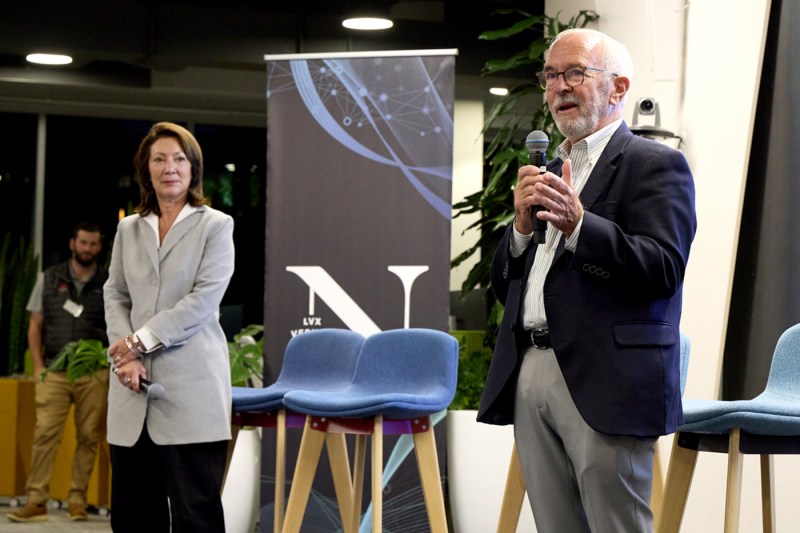
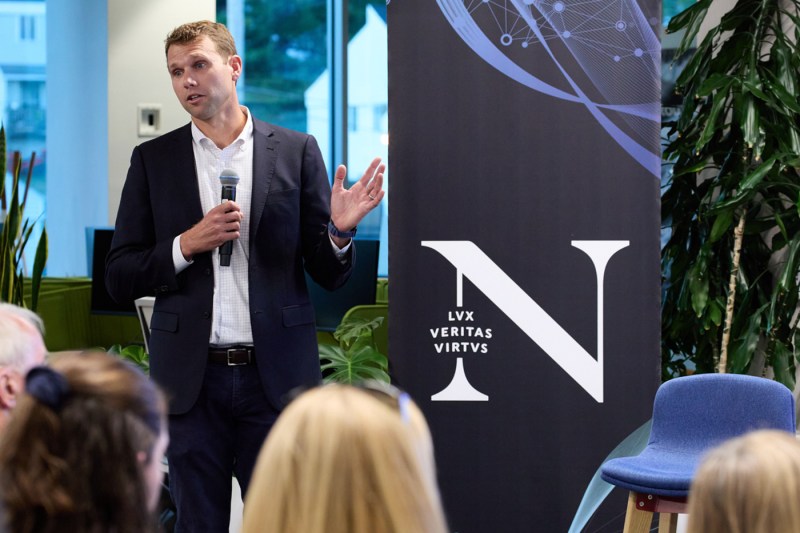
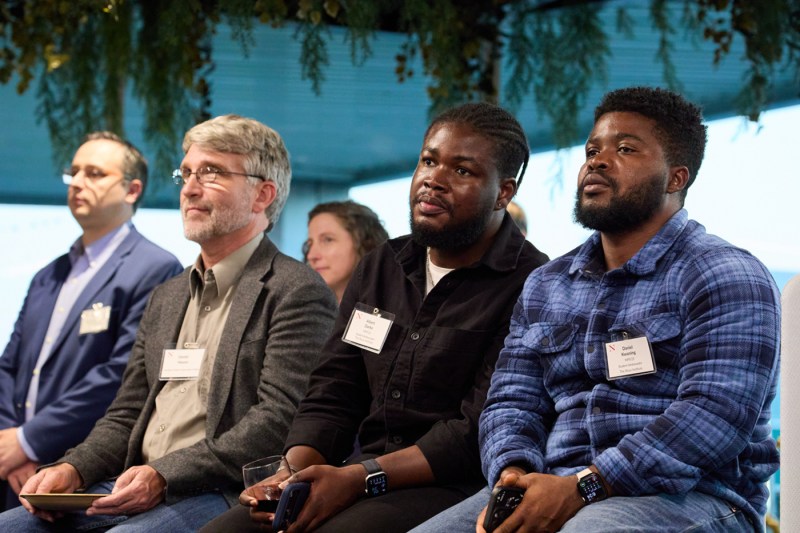
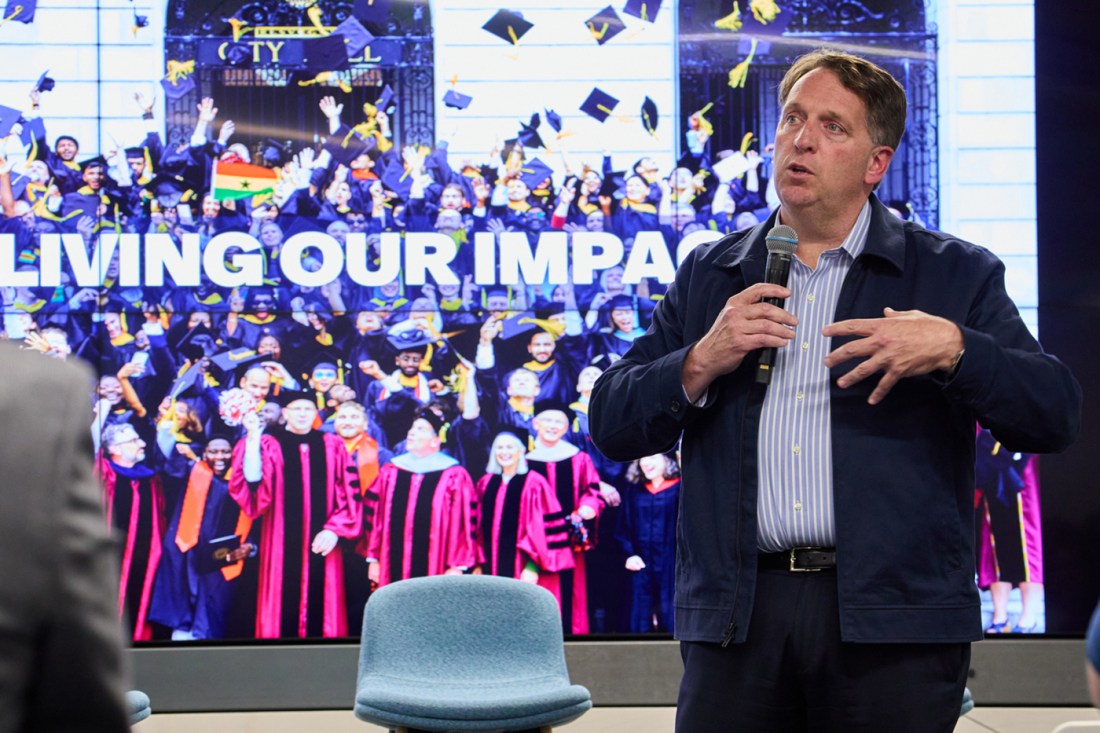
The new Portland campus is currently under construction on the Portland waterfront. It will feature two new buildings: Lunder Innovation Labs and the Alfond Center, which will house lab and research space, classrooms, and gathering spaces, particularly for startups. The Alfond Center will be fully electric and use geothermal wells to help heat and cool the space.
There will also be a parking garage and childcare center for staff, faculty and students.
A public pier and bike/pedestrian path will connect and offer access to the Portland community.
“The vision is to make the campus publicly accessible,” said Chris Mallett, chief administrative officer at the Portland campus. “Three-and-a-half acres of the 13.5 will be available for public access, and other aspects of the campus will be available to the community.”
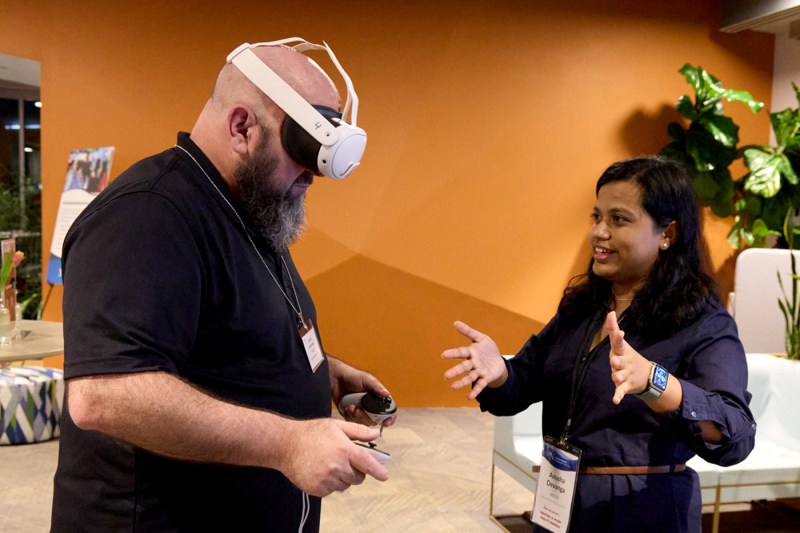
Editor’s Picks
Sam Reiche, a member of the team building the project, said the structures of the new campus are starting to form on the site with precast concrete and construction visible when people drive by. He added that there is zoning for future phases of building.
The Portland campus continues to make an impact in the interim as the new campus comes to life. Courtney Bloniasz, a graduate with a master’s degree in analytics and the Roux’s third-ever commencement speaker, spoke about how the Portland campus allowed her to stay in Maine by providing her with the skills she needed to find another job after her previous one changed.
“I moved here for a job opportunity and just fell in love with the state,” she said. “I knew I really needed to get some technical experience and the Roux Institute happened to blossom at the same time. I was fortunate it was a program really built around me and my professional interests and growth.”
Now an employee at Maine Health, Bloniasz said she was able to bring in examples of data sets and challenges from work to her classes to get the experience she needed in the workplace while in the classroom. She was then able to bring these skills to her job to help them solve challenges.
“One of the things about the Roux Institute is that our academics are deeply embedded into the community and projects here that local companies and organizations and nonprofits are looking to achieve and accelerate,” she said. “By the time I graduated, I had all these different pieces. Yes, I was getting a grade, but I also took these back to my team and used that in work immediately. All of that is possible because of the Roux.”











